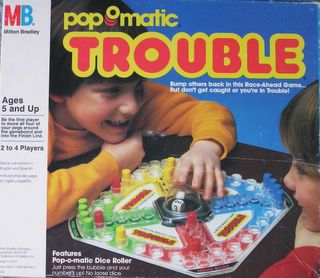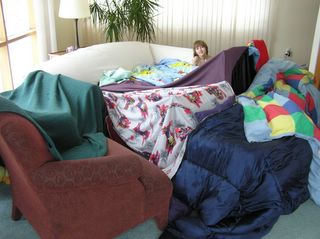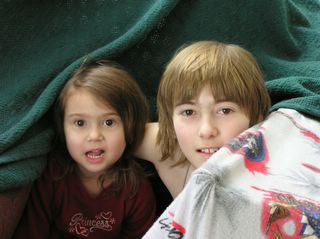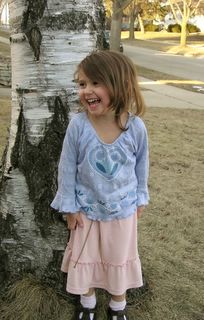A Game of War
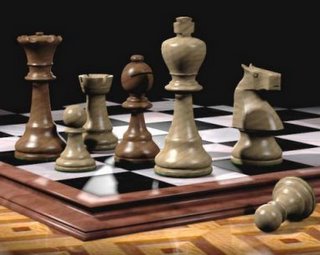
On Saturday, we went to an all-day chess tournament-- Joseph's first. He was joined by seven classmates and his teacher, Mr S.
Joseph won his first two matches easily. Then was paired with the #1 ranked player. He lost, but stayed composed-- looking over at me from across the large hall and shrugging.
Still smiling.
It was during the next match that I knew something was wrong. This one started an hour and a half after the lunch break.
He sat across from his opponent and fidgeted. There was none of the easy conversation he had made with his three previous opponents.
No, he just looked uncomfortable.
And I knew right then that the match was done before he made his first move.
Don't get me wrong-- I don't care if he wins every game.
Losing can be good for a kid.
But damnit, I just don't want him to lose because of diabetes.
You see, chess is a game of concentration. And when Joseph experiences a high blood sugar, his ability to concentrate is one of the things most affected.
When the match was over, we checked his sugar. He was 276.
One hour, a bottle of water, several trips to the bathroom and a small correction later, Joseph sat down to face his fifth and final opponent.
At once I could see that he was calm and focused. He smiled at the other kid. And from across the room I could read Joseph's lips:
"This is my first tournament... is it yours?"
This question was how he had started his first three matches, making small talk.
And sadly, this kind of exchange was exactly the sort discouraged at the outset by both tournament officials and most of the chess coaches in attendance.
(Happily, Joseph's chess "coach" was Mr. S -- a fourth grade teacher who had put together a chess club because our school had none. A man who sheepishly admits that he's not even good at chess.)
Children were instructed at the tournament's open to avoid talking until after the match because "your opponent is your enemy and chess is a game of war."
At one point I had asked Joseph why he always talked with his opponents.
"Mom, I just don't like it if we sit down all hating each other. Then, when one of us loses, it just feels bad."
During the course of the day, Joseph would be approached by all of his previous opponents-- they would ask him how he was doing in the tournament. They all knew him by name-- each one greeting him with a broad smile.
Joseph's final match took less than five minutes.
And when the two boys stood up and shook hands, I really couldn't say who won. They both looked serious and a little sad. Then Joseph wove his way through the many tables, the many matches still in progress, until finally he came to where I stood.
Looking up at me, he smiled and shook his head, saying:
"I can't believe I won. And he took my queen, too. He thought he had me. I thought he had me. But I didn't give up. Kind of like when Sasha Cohen fell, you know? She just kept goin'."
I don't know which was cooler-- the fact that my son wouldn't give up despite losing what he believed to be his most important piece, or that my 10-year-old boy could acknowledge having learned something from a female Olympic figure skater.
And why did he look so serious at the end of the match?
"I just didn't want to make the kid feel bad. He really thought he had me, and when I checkmated him, he looked like he was gonna cry."
Oh.
So no trophy. No victory dance.
And quite frankly, I couldn't be more proud.


